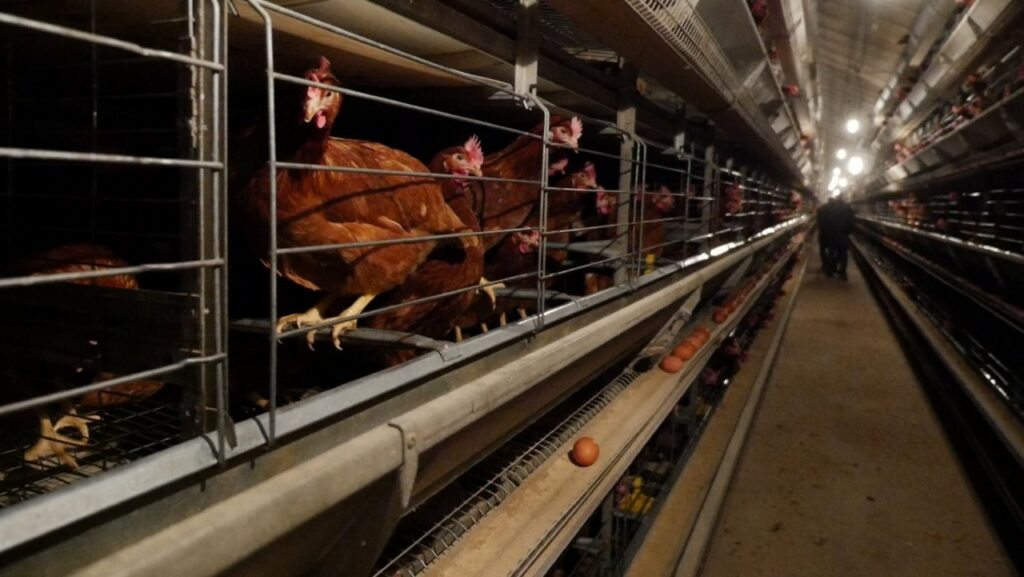Laying hens should be housed in cage-free systems according to a new study published on Tuesday by the European Food Safety Authority (EFSA).
The study focuses on the welfare of laying hens, pullets and layer breeders on farm and compares the animal welfare consequences of non‐cage and cage systems. The scientists confirm that it is not possible to provide sufficient space in cages and recommend housing all birds in non‐cage systems. Meat chickens need more space and must come from slow-growing breeds only.
Among others they note that when laying hens peck each other, they should be farmed in better conditions rather than have their beaks trimmed, as the latter is associated with soft tissue damage and thus negatively impacts their welfare.
As previously reported, the European Commission has committed to put an end to the use of cages in animal farming, following the successful European Citizens Initiative “End the Cage Age” which was coordinated by the animal welfare NGO Compassion in World Farming.
“For many years, industry lobbyists have been claiming that factory farming is beneficial for the welfare of farmed animals but today’s Opinions by the EU scientific body proves them wrong,” commented Olga Kikou, Head of Compassion in World Farming EU.
“We are pleased to see that EFSA has confirmed that caging farmed animals is detrimental for their welfare, and that we need to reduce the stocking density of meat chickens, prevent mutilations and use slow-growing breeds. The EU must adopt new science-based laws for all farmed animals to rectify the outdated and weak provisions in the legislation currently in force.”
Some EU member states are not waiting for the Commission’s legislative proposal, due by the end of 2023, to phase out, and finally prohibit, the use of cage systems for all animals and have already started the process and have banned new so-called enriched cage systems.
As part of the legislative process to revise the EU animal welfare rules, the Commission mandated EFSA to produce a number of scientific opinions. The agency has already published reports on among others animal transport and pigs and cattle at slaughter. In a report in August 2022, it called for an end to the severe restriction of movement of female pigs (sows).
Chickens are intelligent animals according to an article in Scientific American. They can solve complex problems, empathize with others and even deceive. Nonetheless, the majority of laying hens and broilers in the EU are factory farmed.
EU has put into place legislation to ensure that animal welfare conditions are respected but the breaches of its regulations in the pig meat sector are still largely overlooked and has been allowed to continue for years.
“All animals matter, every animal is an individual just as every human being is an individual and all are deserving of our compassion, respect and care. They have personalities, minds and feelings and they feel pain,” said ethologist dr Jane Goodall at a webinar in June 2020 on EU’s Farm to Fork Strategy.
Especially pigs are sentient beings that are known to feel stress symptoms and arguably are suffering immensely during their breeding under conditions of factory farming and crowded transports until their death after stunning by carbon dioxide in slaughterhouses.
“Undoubtfully, pigs are very intelligent and even more intelligent than dogs,” Olga Kikou told The Brussels Times. “On the issue of suffering, there are many factors that come into play. The suffering of most farmed animals is immense and difficult to quantify and compare.”
M. Apelblat
The Brussels Times

